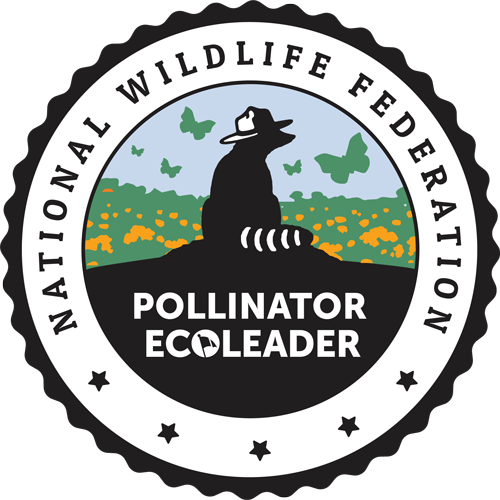
Bees are well-known pollinators, but over 100,000 invertebrates—including butterflies, moths, wasps, flies, and beetles—and over 1,000 mammals, birds, reptiles and amphibians, act as pollinators. Pollinators worldwide are in decline. Habitat loss, invasive species, parasites, and pesticides are largely to blame. But you can help by taking the steps to earn the NWF EcoLeader Pollinator Badge!



How It Works:
EcoLeaders earn points towards certification by taking action in the following categories which represent the NWF EcoLeader Continuous Learning and Leadership Model:Learn: Learn about the campaign and why it’s important to get involved
Act: Choose an action(s) you’d like to take from a list generated by the NWF campaign staff leads
Communicate: Choose a method to communicate about the campaign and the action you are taking
Sustain: Choose an action to take that will help to sustain your effort on this campaign
Reflect: Take time to reflect on your experience, what you have learned and how you will carry it forward in your life
Earn the badge





